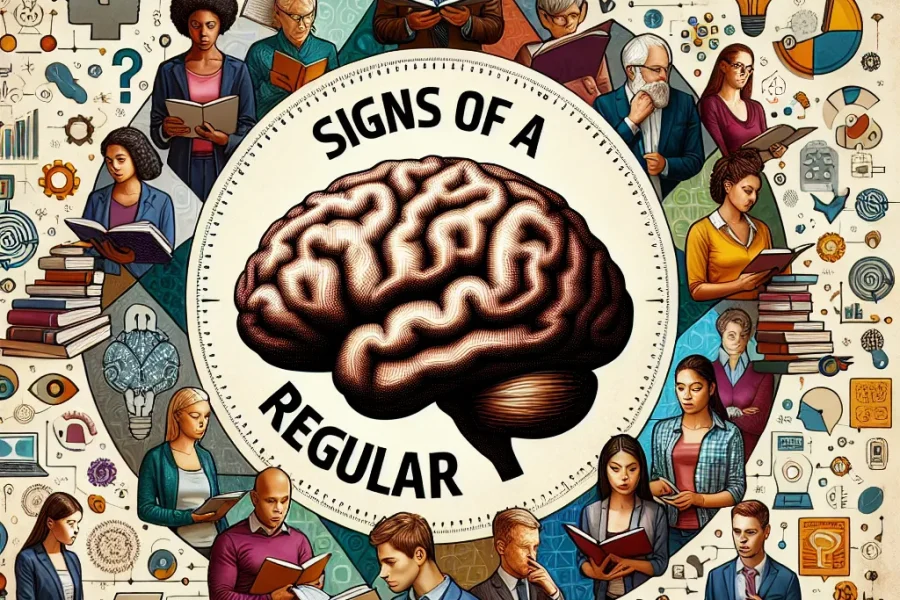What Is The Highest IQ On Earth?
In our perpetual fascination with human potential, the Intelligence Quotient (IQ) remains one of the most intriguing metrics of cognitive capability. This standardized measurement, designed to assess intellectual abilities relative to age groups, continues to captivate both scientific and public interest. While the average IQ score centers around 100, there exists an exceptional group of individuals whose cognitive abilities push the boundaries of conventional measurement scales. This leads us to an compelling question: What truly is the highest IQ on Earth?
If you are looking for an excellent way to get your IQ Score, try our highly accurate IQ Test.
The exploration of this question bridges historical achievements and modern assessments of intellectual capability. While numerous claims of extraordinarily high IQs exist throughout history, contemporary understanding requires careful examination of these assertions, particularly given the evolution of testing methodologies and our growing understanding of intelligence itself.
William James Sidis remains one of history’s most fascinating cases. Born in 1898, this remarkable prodigy entered Harvard at age 11 and reportedly mastered over 40 languages. While historical estimates place his IQ between 250 and 300, modern experts caution that these figures deserve scrutiny, as they predate current standardized testing methods.
Marilyn vos Savant holds the Guinness World Record for “Highest IQ” with a score of 228 on the Stanford-Binet test. Her achievement, recorded in the 1980s, continues to generate discussion in cognitive science circles. However, modern psychometricians emphasize that scores at such extreme levels require careful interpretation, as most IQ tests aren’t designed to measure intelligence at these extraordinary heights.
Christopher Langan, often called “the smartest man in America,” has reportedly scored between 195 and 210 on various IQ tests. His cognitive abilities have drawn significant academic interest, though he’s chosen a life largely outside traditional academic circles. Another contemporary intellectual giant, Terence Tao, measured at 225-230 during his childhood, has translated his exceptional abilities into groundbreaking mathematical research, earning him the prestigious Fields Medal.
Recent developments in cognitive science suggest that intelligence manifests in ways that traditional IQ tests might not fully capture. Researchers now recognize multiple forms of intelligence, including emotional, spatial, and creative intelligence, which contribute significantly to human capability and achievement.
The modern landscape of high-IQ societies has evolved as well. Beyond traditional organizations like Mensa (top 2%), newer groups like the Mega Society (top 0.0001%) provide communities for individuals with exceptional cognitive abilities. These societies increasingly focus on practical applications of intelligence rather than mere score comparison.
It’s worth noting that recent research has highlighted the role of neuroplasticity and cognitive training in enhancing mental capabilities. While baseline intelligence may be partially inherited, studies suggest that environmental factors, education, and mental exercise can significantly impact cognitive performance.
The digital age has brought new dimensions to IQ testing and intelligence assessment. Online platforms offer sophisticated testing methods, though experts emphasize the importance of professional, supervised testing for accurate results. The emergence of artificial intelligence has also sparked new debates about the nature of intelligence and how we measure it.
Experts increasingly emphasize that while high IQ scores indicate exceptional analytical capabilities, they represent just one facet of human potential. Success in life often depends on a complex interplay of factors, including emotional intelligence, creativity, resilience, and social skills. Modern research suggests that the practical application of intelligence, rather than raw scores, better predicts life outcomes.
Looking ahead, the scientific community continues to refine our understanding of human intelligence. New research methodologies and brain-imaging technologies offer unprecedented insights into cognitive function, suggesting that traditional IQ measurements may eventually be supplemented or replaced by more comprehensive assessment methods.
In conclusion, while the quest to identify the highest IQ on Earth persists, the contemporary understanding of intelligence has evolved beyond simple numerical scores. The most remarkable aspect of human intelligence may not be its upper limits, but rather its diversity and potential for growth. As we continue to understand the complexities of the human mind, the focus increasingly shifts toward nurturing and applying intelligence in ways that benefit both individuals and society as a whole.




Leave a Comment